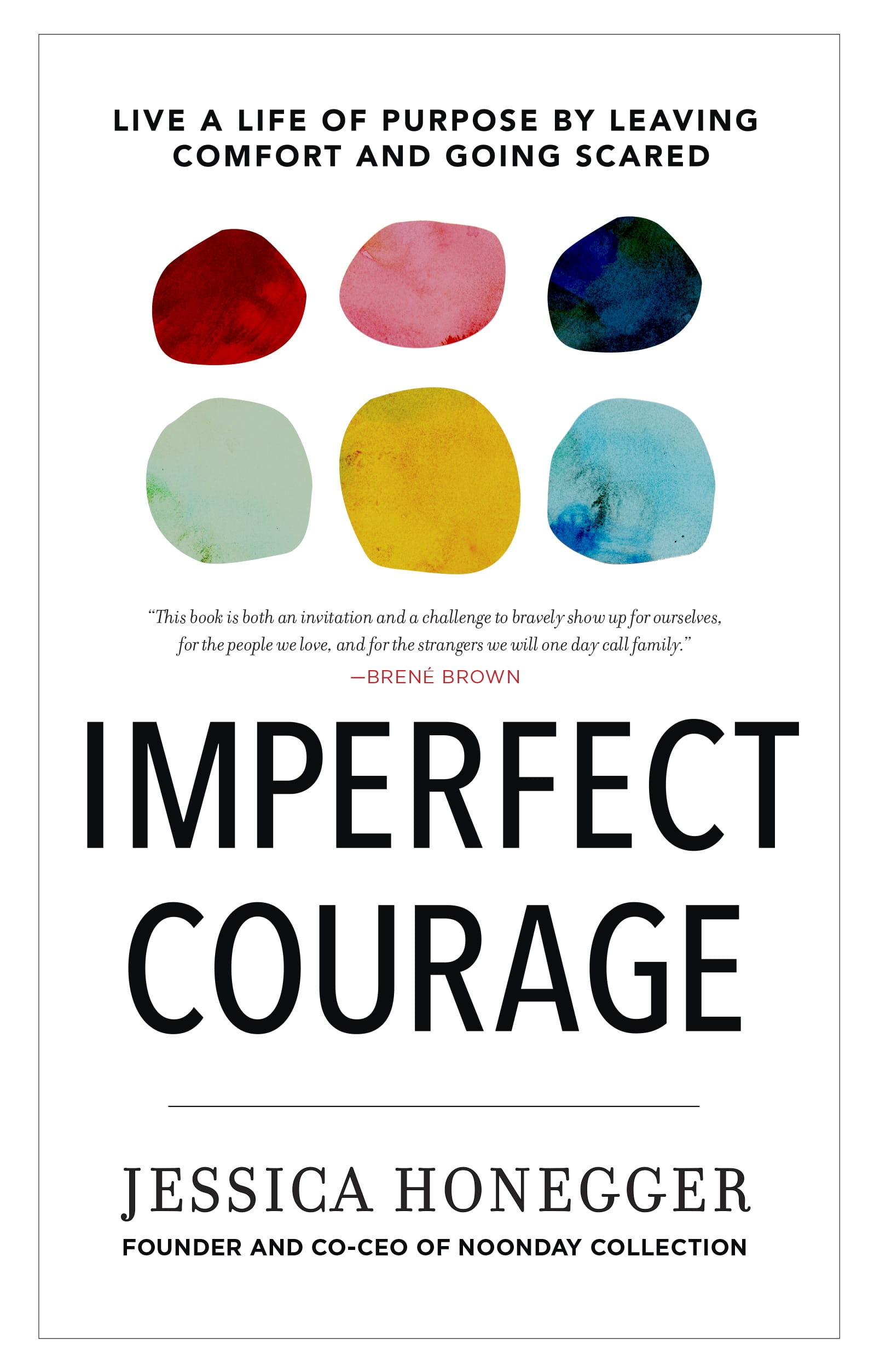
I sat Tessa on my lap during our Sunday morning church service, tenderly adjusting her weight on my thighs to make sure that she was secure. Tessa is my friend Meagan’s daughter, whom Meagan adopted from Ethiopia, and the next day she would start kindergarten. As I closed my hand around her tiny fingers, I couldn’t help but think about my own kindergarten experience. There was the alphabet wall, the class pet, and my teacher, Mrs. Plant. But the memory that sticks out even more than those? It was the playground where I first was called fat.
I shuddered at the memory, especially when I imagined Tessa rolling her yellow electric wheelchair onto the playground. Sweet Tessa, with the smile of a movie star. Tessa, with the personality of sunshine. Tessa, with no limbs, save for the one I held gently in my grip. I placed my other hand on her back and prayed for her, as the musicians started to play a song. “He loves us,” they sang, “oh, how he loves us . . .”
I felt her voice reverberate from the back of her chest into my palm as she unclasped her fingers from mine to raise her small arm in the air, while singing at the top of her lungs. I felt the burdensome kindergarten memory dissipate along with my fears of Tessa’s first day. In that moment, our souls felt the weight of our worth. Our belonging is not in our bodies after all.
If you are of a certain age, then you remember our nation’s 1980s health craze, characterized among other things by SnackWell’s Devil’s Food Cookie Cakes, a lovable permed-hair fitness guru named Richard Simmons, and a government-funded nationwide initiative to promote healthful habits among children called the Presidential Physical Fitness Test.
I recall lacing up my tennis shoes during physical education on the morning of our school’s test, praying for a tornado to bulldoze its way through town so the whole thing would get canceled, even though in our neck of the woods it would have been the first time in history that such an event occurred. As part of the fitness program, elementary school students were tasked with running a mile—a whole mile, which I had never done even once in my life—in a certain amount of time. I wasn’t sure what would happen if (a) we didn’t run the full distance, or (b) we took longer than the allotted time to run, but I did know that my PE teacher meant business.
That PE teacher’s early efforts toward preparing us kids for the test came in the form of verbal exhortation. “Let’s go, guys! Faster!” she would holler from across the field. Eventually, upon seeing that no amount of screaming was going to make little Jessica Mayfield’s legs go any faster, she came up with a new strategy.
“Here,” she said during class one day, as she handed one end of a jump rope to me and handed the other to one of the fastest kids in my grade. “You hold this handle, and Beth will hold the other. I’ll have her run at her normal pace, and your only job is to keep up.” I remember being dragged around the entire field, barely able to hold on to the jump rope with my sweaty little hands.
Keep up, Jessica! Faster! is all I could say to myself.
That jump-rope ordeal is one of those memories that seems so insignificant, until I realize how much real estate it still occupies there in the far reaches of my subconscious, all these years later.
As it turns out, it wasn’t just my gym grade that was tied up in that experience; it was this idea that I needed to “keep up” in order to be worthy. When we chase our worthiness instead of embracing it, we eventually will run out of breath.
In my own life, I have struggled to slay the unicorn that says I will finally belong and finally be worthy of acceptance when I reach perfection—the version, I tell myself, that others want me to be. Only then will I be invited to pull up a permanent seat at the table.
The women I encounter and the one who greets me in the mirror each morning tether themselves to all sorts of things that forever remind us that we are not enough. But if there is one thing that seems to top the list for most women I meet, one thing that drags us across the field, huffing and puffing and totally unable to keep up, it is this: our own narrowly defined and heavily airbrushed definition of beauty.
The thing you and I tend to give ourselves over to, the tether to which we willingly affix our lives, is the pursuit of beauty on other people's terms. And it’s the one rope that, no matter how big a pair of scissors we wield, seems way too thick to cut.
Chances are, you’ve felt less than satisfied with your body at least once in your life. One international study showed that 98 percent of all women want to change at least one aspect of their physical appearance. It doesn’t take a mathematician to sort out, then, that only 2 percent of us believe that we are beautiful, just as we are.
In the same way that I allowed myself to be dragged around that PE field by someone else, you and I allow ourselves to be dragged around by a definition of beauty that is fraudulent at best.
At last count, Americans spend upward of $60,000,000,000 on weight-loss tricks and trends each year. Whether it’s calorie counting, carb counting, keto counting, macro counting, master cleanse fasting, or juicing, the diet-savvy powers that be promise that we can obtain the body of our dreams, if only we try hard enough, and we buy it—hook, line, and sinker, one and all.
We so badly want to feel like we belong. We want to know that we are acceptable and lovable, and we think that looking likeher, whoever her happens to be these days, will buy us that acceptance.
In his essay “The Weight of Glory,” the prolific author C. S. Lewis explained that every human being wants to be appreciated and accepted and loved by God, but instead of looking to God for fulfillment, we transfer this deep desire for acceptance by the divine to acceptance from everyone else. Like being pulled around by the jump rope, we run after worthiness, even though we’ve had it all along. We are accepted—fully and completely—by a God who does not make mistakes. Maya Angelou put it well in an Academy of Achievement interview when she said, “I believe that each of us comes from the Creator trailing wisps of glory.” That’s it, in a nutshell. Amen.

JESSICA HONEGGER is the founder of Noonday Collection, the largest fair-trade jewelry company in the world that partners with artisans across the globe to create unique and hand-made pieces of jewelry. She and Noonday work to empower women from a wide variety of communities and cultures to create their own, thriving businesses by partnering with Noonday as an artisan or ambassador. Honegger lives in Austin with her husband and children.
Photo Courtesy: Pexels


